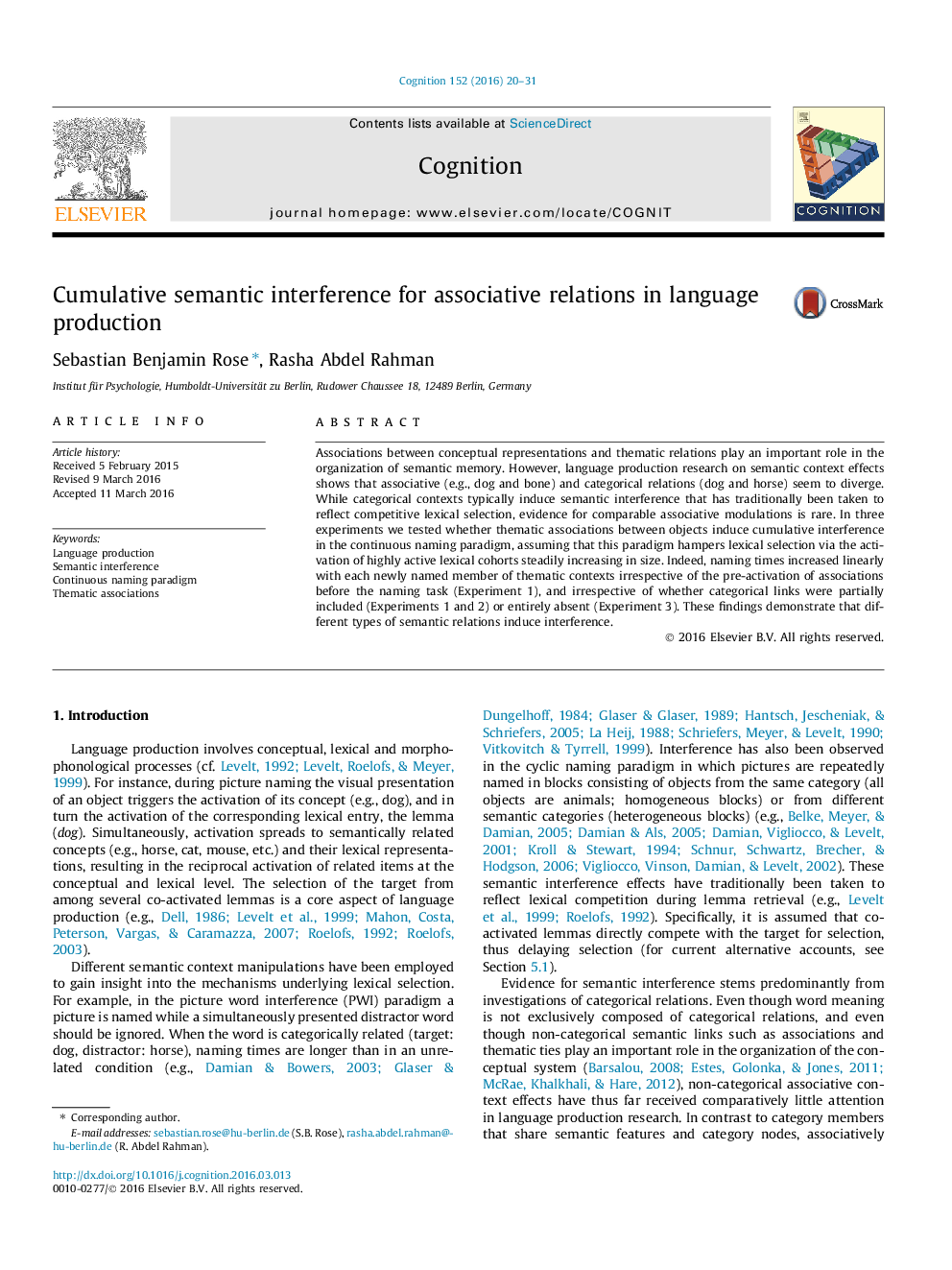| Article ID | Journal | Published Year | Pages | File Type |
|---|---|---|---|---|
| 7286129 | Cognition | 2016 | 12 Pages |
Abstract
Associations between conceptual representations and thematic relations play an important role in the organization of semantic memory. However, language production research on semantic context effects shows that associative (e.g., dog and bone) and categorical relations (dog and horse) seem to diverge. While categorical contexts typically induce semantic interference that has traditionally been taken to reflect competitive lexical selection, evidence for comparable associative modulations is rare. In three experiments we tested whether thematic associations between objects induce cumulative interference in the continuous naming paradigm, assuming that this paradigm hampers lexical selection via the activation of highly active lexical cohorts steadily increasing in size. Indeed, naming times increased linearly with each newly named member of thematic contexts irrespective of the pre-activation of associations before the naming task (Experiment 1), and irrespective of whether categorical links were partially included (Experiments 1 and 2) or entirely absent (Experiment 3). These findings demonstrate that different types of semantic relations induce interference.
Related Topics
Life Sciences
Neuroscience
Cognitive Neuroscience
Authors
Sebastian Benjamin Rose, Rasha Abdel Rahman,
